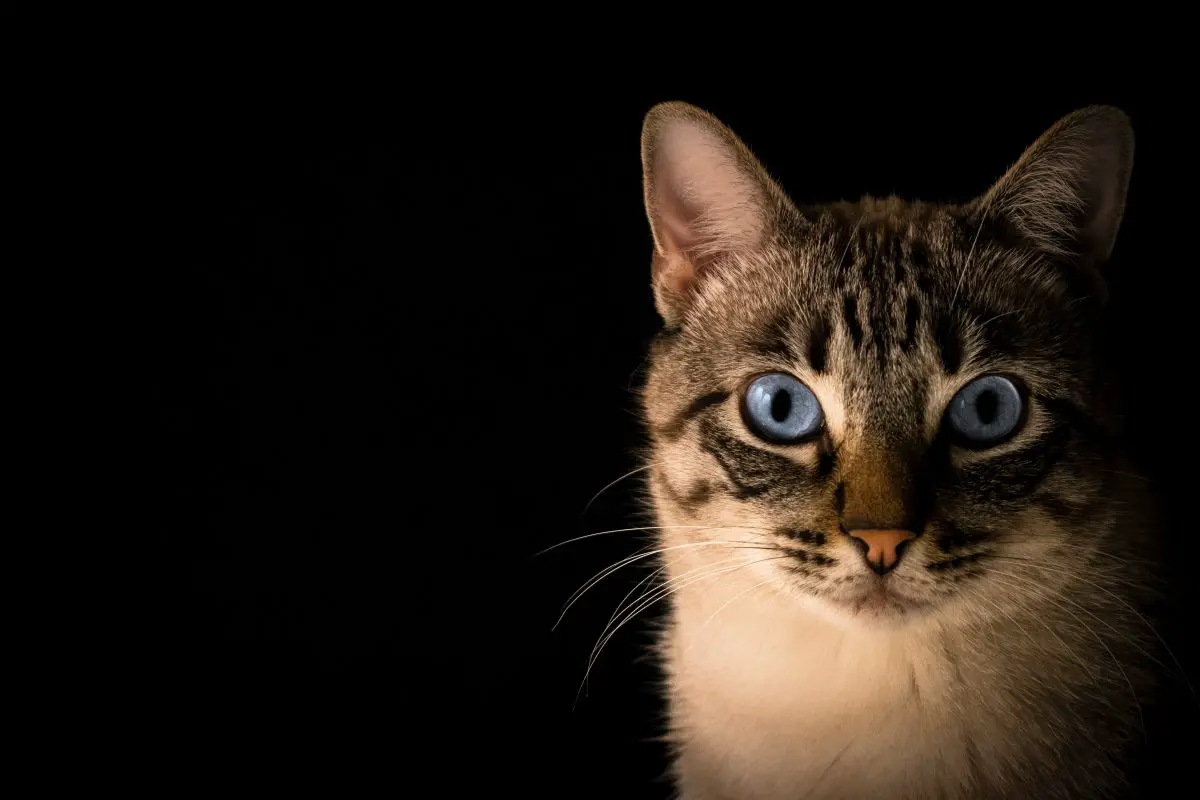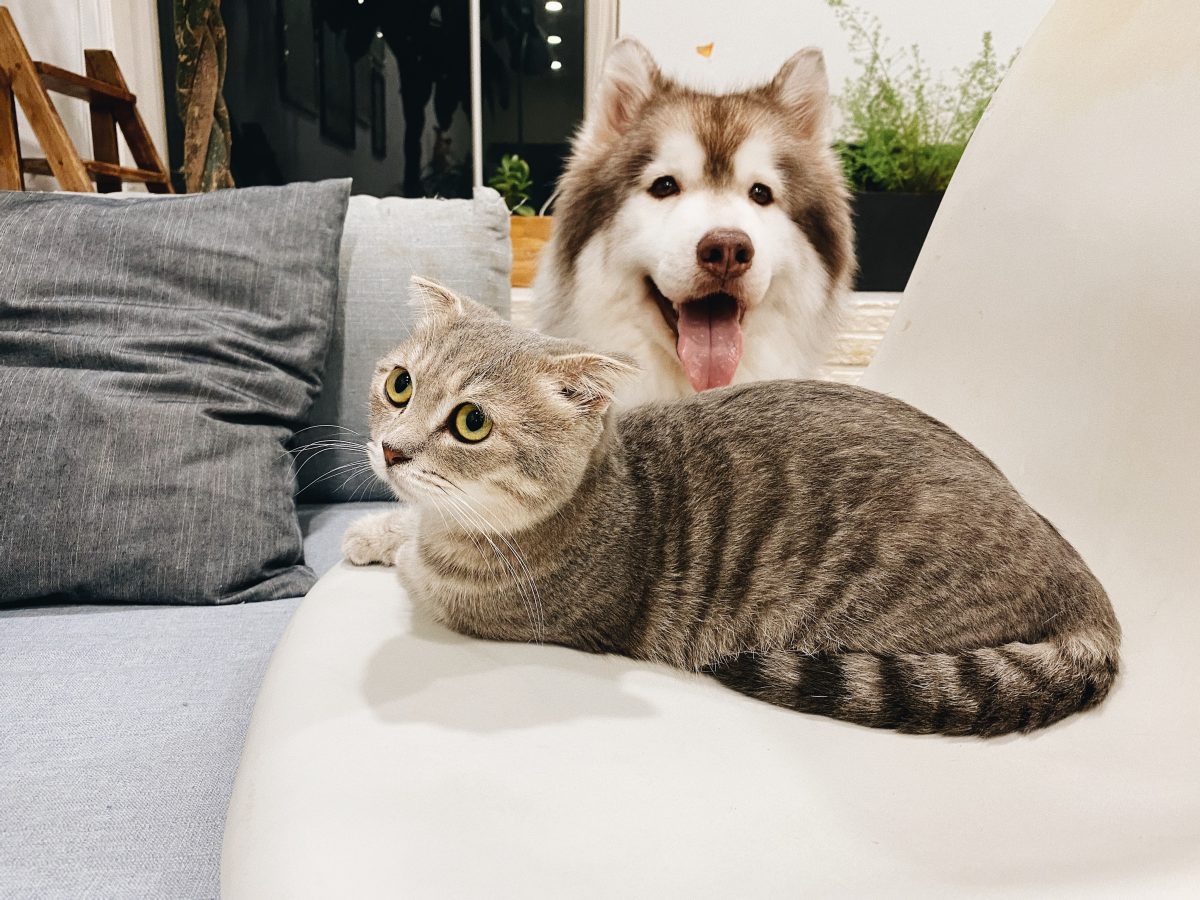The question of whether you can feed your cats ginger may have crossed your mind a few times. Ginger is often recommended as an herbal remedy for stomach upsets or simply as a spice in some of your favourite dishes. Christmas just wouldn’t be the same without gingerbread and many would miss the taste of ginger beer. But can your cat enjoy any of these treats too?
The answer to whether you can feed your cats ginger root (the straightforward ginger we’ve all seen at the greengrocers) appears to be a resounding yes- ginger is safe for cats, but you can never know too much when it comes to the safety of the food you are giving to your feline friends.

Table of Contents
- Health benefits of ginger for cats
- Ginger as a weight loss aid for cats
- Can my cat eat too much ginger?
- So, there are unsafe types of ginger for cats?
- Ginger drinks
- What about dogs and Ginger?
- Where to keep ginger
- Can my pet be allergic to ginger?
Ginger (Zingiber officinale) is a flowering plant native to Southeast Asia. Its rhizome, or modified stem, is ginger root- commonly called ginger in the food world. Often used as a flavouring and sometimes just eaten on its own, ginger has become a popular foodstuff across the globe since it was first transported thousands of years ago.
Health benefits of ginger for cats
Just like in humans, ginger can have health benefits in cats. Ginger root has been used for thousands of years to help stomach aches, indigestion and nausea and it can provide the same relief in cats. However, eating ginger on an empty stomach may cause the opposite effect in your cat, including an irritable tummy. Therefore, it is recommended that when feeding your cat ginger, you mix it with some cat food (or with herbal supplements that have been recommended for your cat by the vet). This can be especially helpful for cats and kittens who have sensitive tummies. Ginger root can also reduce the frequency of vomiting in cats with digestion issues.

Ginger as a weight loss aid for cats
Additionally, a 2013 study carried out on rats found that adding ginger into their diets helped to promote weight loss and that rats who ate ginger lost weight more effectively than the control group. Though rats metabolize food slightly differently to cats, similar results can be expected. If your cat is needing to lose a little bit of weight, ginger might be able to help them do this more effectively.
Can my cat eat too much ginger?
It is possible to overfeed your cat with ginger. The amount of ginger your cat can eat will likely depend on its weight and you should consult with your vet if you are unsure. It is also important to mention to your vet the exact type of ginger you intend to give to your cat. There are a few different safe forms of ginger you can feed to your cat including capsules and grated ginger. Your vet will be able to help you determine how much of each of these is safe and appropriate for your cat.
So, there are unsafe types of ginger for cats?
So, there are unsafe forms of ginger for cats?
Absolutely! Some forms of ginger are not safe to be feeding to your cat and you should be careful to avoid them stealing a bite when you are indulging. Foodstuffs such as gingerbread are not meant for cats because they contain other ingredients like excess sugar, butter and golden syrup. If your cat does manage to steal some gingerbread, however, you probably don’t need to panic. A trip to the vets may be in order as stomach upset, vomiting and diarrhoea are some of the side effects that can occur when cats eat foodstuffs that they shouldn’t, but your vet should be able to help out.
But, if your cat has snaffled gingerbread that contains chocolate, it is important to get them to the vets urgently because chocolate is poisonous to cats.

It is also important to check the ingredients on store bought ginger products, like gingerbread, because these might contain other spices such as cinnamon and nutmeg which are best avoided when it comes to cats. These spices can cause stomach upset and digestive irritation in cats which might require medical attention.
Ginger drinks
Cats also should not have ginger ale or ginger beer. It might seem obvious in the case of ginger beer, which contains trace amounts of alcohol despite being labelled as non-alcoholic, but your cat should not have ginger ale either.
Despite being used to ease stomach aches in humans, ginger ale will not have the same benefits in your cat. Ginger ale is a carbonated drink and contains high levels of sugar and soda. Both of these things are harmful to your cat. Additionally, soda contains caffeine, a stimulant that increases the heart rate whilst in effect and this can be dangerous for cats, as they are much smaller than humans and so their body is less able to cope with the effects of caffeine. Caffeine also contains the alkaloid theobromine, the substance also in chocolate, which is poisonous to your furry friends. They might have a strong and healthy immune system, but theobromine is not for cats.
What about dogs and Ginger?
So, if my cat can eat ginger, what about my dog? Can I feed ginger to all my pets? Maybe not all your pets- your fish might not appreciate chunks of ginger in its tank, but your dog may well love a tasty bit of ginger root. Dogs can eat ginger in many of the same ways that cats can; ginger root mixed with dog food, ginger powder or as herbal tablets. Ginger can also settle your dog’s stomach in the same way it can for your cat.

However, you should also be careful before feeding ginger to your dog. Be sure to seek a vet’s opinion before giving ginger to your dog if it is pregnant, on medication, awaiting surgery, or has any underlying medical condition.
As with cats, it is not recommended that you feed your dog foodstuffs such as gingerbread, ginger ale or ginger cake. Aside from being bad for your dog, the nutritional value in these treats is very low for your furry friends and they will not benefit from regularly eating such foods.
Where to keep ginger
If you buy ginger especially for your pets you may be wondering where to store it. Clever cats and dogs will sniff out anything you leave lying around and snaffle it all at once. It is best to store ginger in a cool, dry place such as the fridge before consumption. Additionally, if you are bulk buying ginger for the future you can also peel it and keep it in the freezer. But be sure to fully defreeze any ginger you get out of the freezer before feeding it to you pet.
Can my pet be allergic to ginger?
Yes, it is possible for both cats and dogs to be allergic to ginger. Some animals may suffer an allergic reaction after consuming ginger. It is also possible for your pet to develop an allergy, just as some humans do. Other animals may suffer an allergic reaction from ginger coming into contact with their skin. In these cases, it is important to get your pet to the vet as soon as possible.
Symptoms of an allergic reaction
The main symptoms of an allergic reaction in cats and dogs include:
- Nausea and vomiting
- Diarrhoea
- Skin rashes
- Hair loss
- Change in behaviour
So overall ginger is a pretty safe bet for most cats and dogs, so long as you don’t extend it to include other ginger foodstuffs like gingerbread or ginger cake. Ginger can even be good for your pets in small amounts and have calming effects on an unhappy tummy. However, if you have any questions, it is always best to check with your vet before giving your pet ginger.
FAQs about Cats and Ginger
Yes! Ginger root, or ginger as it’s commonly known, is safe for most cats in small amounts.
Ginger can be good for dogs and cats when it is given in small amounts. Ginger can help settle your pets’ stomach upsets, just as in humans.
Cats can have ginger but other spices such as turmeric should be avoided as they can cause your cat to suffer stomach irritation.
You can certainly try! Ginger does have stomach settling properties but, if in doubt, a trip to the vets is always recommended.




